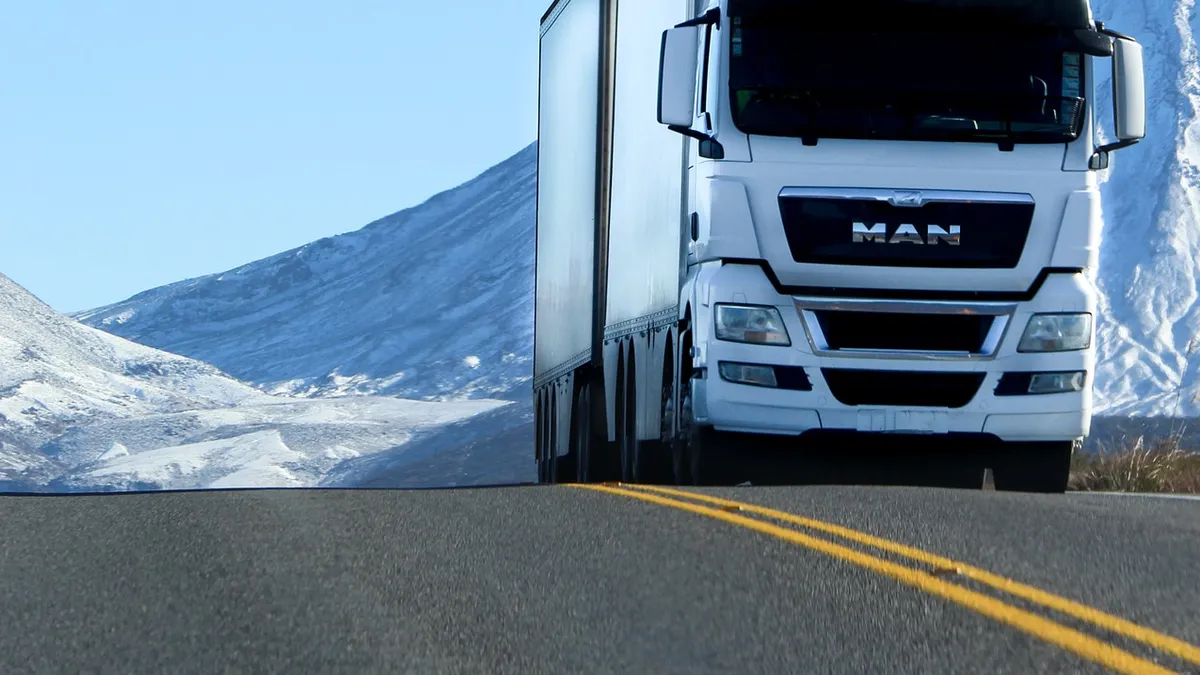Dive Brief:
- Uber will shut down its self-driving truck program, deciding instead to "move forward exclusively with cars," Eric Meyhofer, head of Uber Advanced Technologies Group, said in a statement emailed to Supply Chain Dive.
- The company started testing self-driving trucks after it acquired startup Otto in August 2016. Employees who work in the self-driving truck division will either pivot to work on self-driving cars or be provided a separation package, TechCrunch reported.
- The decision to shutter the autonomous trucks unit does not affect Uber Freight, which connects truck drivers with shippers and allows them to book with a predetermined price through Uber Freight's app.
Dive Insight:
While still a concept of the distant future, fully autonomous trucks hold potential for an industry grappling with a driver shortage. In theory, if trucks can operate without a driver, the capacity crunch is reduced.
Fully autonomous cars and trucks, however, have a long way to go before coming to fruition. On SAE International's driving automation scale, with level 5 being fully autonomous, most vehicles are still on levels 1 and 2.
Regulators and the public tend to be skeptical of unmanned vehicles, and fears were further heightened when a self-driving Uber car fatally struck a pedestrian. The Alliance for Driver Safety and Security, which represents several major trucking companies, has stated its opposition to fully autonomous trucks. The alliance claims truck drivers are critical for handling detours, emergencies or extreme weather changes.
With Uber shuttering its self-driving trucks unit, the industry now has one fewer company innovating to develop autonomous trucking technology.
Self-driving trucks could result in significant cost savings for both shippers and carriers, eliminating labor costs. Trucks would no longer have to comply with hours-of-service regulations, thereby increasing inefficiency throughout the supply chain as trucking and e-commerce demands continue to grow.
While the decision doesn't affect Uber Freight, it does leave the division as a bit of an outlier among Uber's services, most of which focus on passengers, FreightWaves reported.
The Uber Freight App acts as a broker between drivers and shippers, although some truckers have been hesitant to use the service, citing concerns about price wars and greater responsibility given the elimination of the middle man.
Uber, however, is confident in the business unit. Load volume transported through Uber Freight is doubling each quarter, and the unit's operations have grown from three primary regions when it launched in May 2017 to the entire continental U.S.












